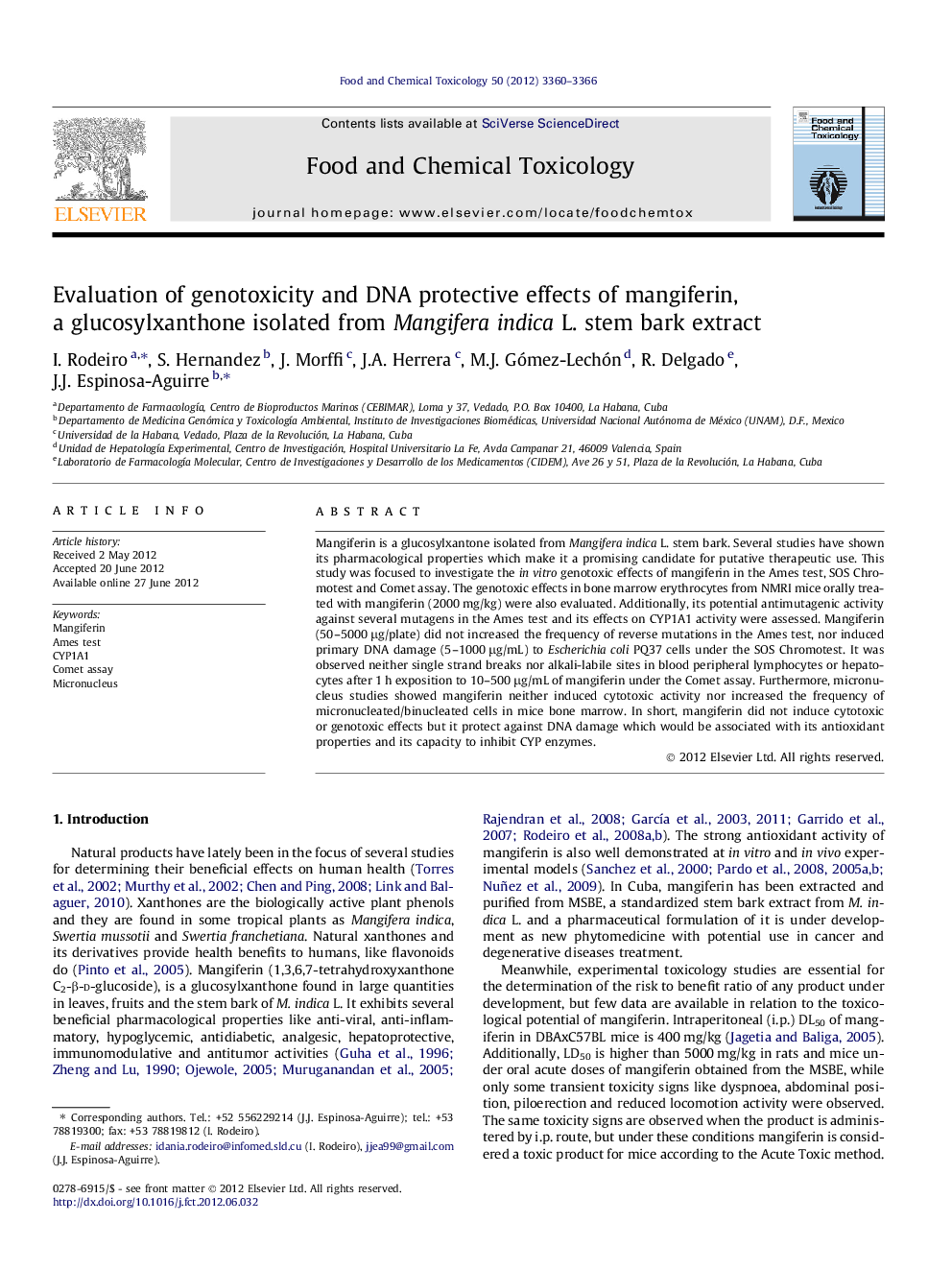| Article ID | Journal | Published Year | Pages | File Type |
|---|---|---|---|---|
| 5852268 | Food and Chemical Toxicology | 2012 | 7 Pages |
Mangiferin is a glucosylxantone isolated from Mangifera indica L. stem bark. Several studies have shown its pharmacological properties which make it a promising candidate for putative therapeutic use. This study was focused to investigate the in vitro genotoxic effects of mangiferin in the Ames test, SOS Chromotest and Comet assay. The genotoxic effects in bone marrow erythrocytes from NMRI mice orally treated with mangiferin (2000 mg/kg) were also evaluated. Additionally, its potential antimutagenic activity against several mutagens in the Ames test and its effects on CYP1A1 activity were assessed. Mangiferin (50-5000 μg/plate) did not increased the frequency of reverse mutations in the Ames test, nor induced primary DNA damage (5-1000 μg/mL) to Escherichia coli PQ37 cells under the SOS Chromotest. It was observed neither single strand breaks nor alkali-labile sites in blood peripheral lymphocytes or hepatocytes after 1 h exposition to 10-500 μg/mL of mangiferin under the Comet assay. Furthermore, micronucleus studies showed mangiferin neither induced cytotoxic activity nor increased the frequency of micronucleated/binucleated cells in mice bone marrow. In short, mangiferin did not induce cytotoxic or genotoxic effects but it protect against DNA damage which would be associated with its antioxidant properties and its capacity to inhibit CYP enzymes.
⺠Mangiferin does not induce genotoxic damage in in vivo assays. ⺠Mangiferin is not mutagenic in bacterial in vitro assays. ⺠Mangiferin elicits antimutagenic effects reducing the mutagenic activity of several mutagens in the Ames test. ⺠Mangiferin is capable to interfere with the activity of CYP1A1.
